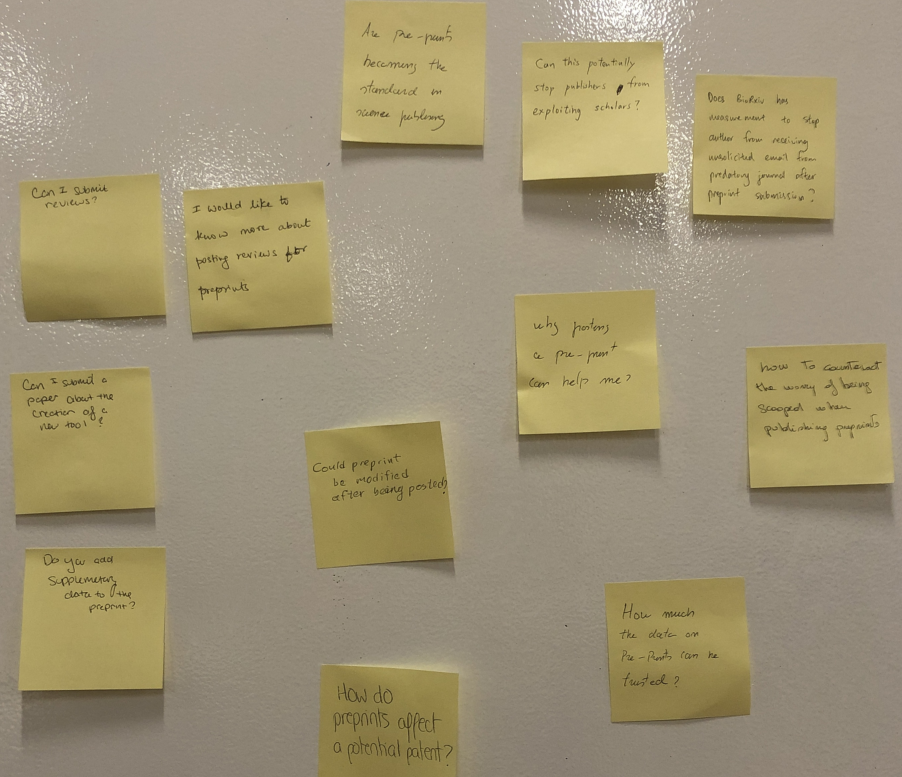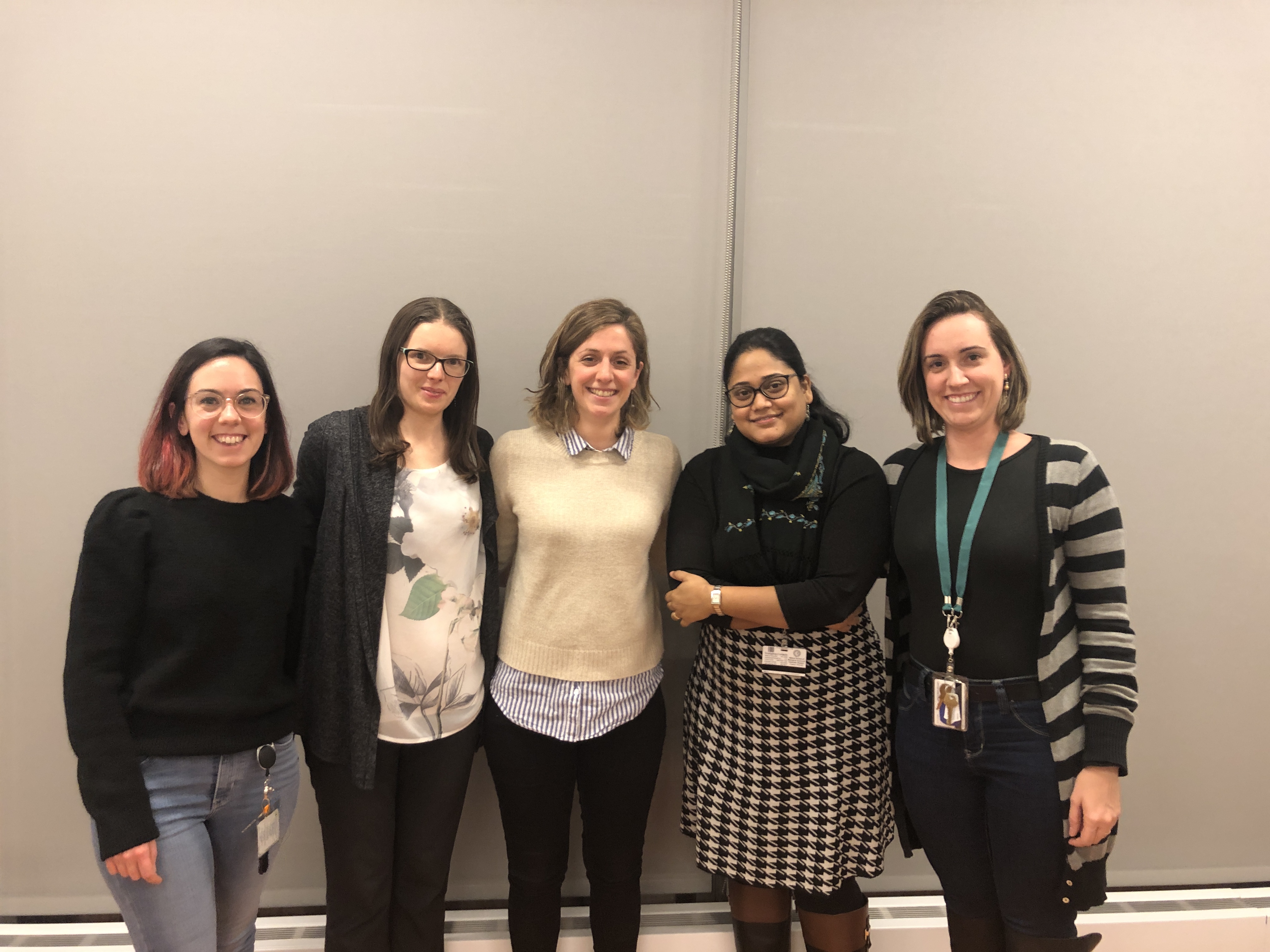Preprints Workshop at Columbia University
24 February 2020
On February 11th, the Postdoctoral Society at Columbia University held a Preprints Workshop to bring some clarity about this relatively new form of disseminating research findings. For this event, Sandra Franco, a postdoctoral researcher at Columbia University, member of the Postdoctoral Society and also a preLighter, invited Samantha Hindle and Sol Fereres from bioRxiv to discuss the anatomy of preprints and help early career researchers get a better understanding of how preprints can help them in advancing their careers.
The session started with some reflections about what the participants were expecting to learn and their main concerns around preprints.

Samantha and Sol talked about the benefits of making our scientific discoveries accessible early on in the process of publishing. For example, in the current landscape of the coronavirus epidemic, preprints are helping accelerate science in a moment when it’s really important to collaborate and share what we discover. Indeed, new platforms such as Outbreak Science rapid PREreview (OSrPRE) attracted a lot of attention from the participants. OSrPRE is an open infrastructure allowing scientists to both request and give rapid feedback on outbreak-related preprints. We also talked about ways to engage with preprints in platforms such as preLights, which helps to make interesting and ground-breaking preprints stand out.

During the workshop, we had some great discussions about the benefits but also some potential pitfalls of preprints. However, we all agreed about the important role that the scientific community plays in taking preprints to the next level and democratizing scientific knowledge.
After this session, we all left with the feeling that preprints can really represent a breaking point in the current publishing landscape. With events like the one we organized, we can help sparkle conversations that can lead to better understanding, more awareness and less fear to ultimately increase adoption of preprints.
This post was written by Sandra Franco










